“There are eight couples present at today’s Mass who are celebrating their fiftieth wedding anniversary – a true testimony in this time of the culture of the provisional – and one couple who are celebrating their twenty-fifth”.
Pope Francis offered Mass for them on Friday morning, 20 May, in the Chapel of Santa Marta, and offered a reflection on marriage during his homily, reminding them that witnessing to the truth also means having compassion for people.
Referring to the liturgical readings of the day, the Pope said that the scene from Mark’s Gospel (10:1-12) immediately grabs our attention: “Jesus, having departed from Capernaum, was in the region of Judea beyond the River Jordan”, and “crowds again gathered around him; and, as was his custom, he again taught them”.
The protagonist, the Pope explained, is “the crowd that comes to him: he taught them and they listened”. All of those people followed Jesus precisely because they enjoyed listening to him. The Gospel says that “he taught with authority, not as the scribes and Pharisees taught”. This is why “the crowd, the people of God, was with Jesus”.
However, the evangelist Mark states that there was also, “on the other side, that small group of Pharisees, Sadducees and doctors of the law, who were always approaching Jesus with bad intentions”. The Gospel clearly tells us that their intention was “to test him”: they were always ready to use the classic banana peel “to make Jesus slip”, thus taking away “authority”.
These people, the Pontiff said, “were separated from the people of God: they were a small group of enlightened theologians who believed that they had all knowledge and wisdom”. But, “forced to cook their theology, they had fallen into case law, and could not get out of the trap”. To the extent to which they kept repeating: “You cannot, you cannot!”. The Pope added that Jesus speaks of these people “in the Gospel of Matthew, Chapter 23, and describes them well”.
“The issue is marriage”, Pope Francis made clear. It is a theme, he noted, that “seems providential, with eight couples celebrating their fiftieth and twenty-fifth wedding anniversaries”, present at the celebration of Mass in the Chapel of Santa Marta.
“Two times, in the Gospel, this small group” addresses “Jesus on the subject of marriage”. Particularly “when the Sadducees, who did not believe in eternal life, proposed a question about levirate marriage”, that is, regarding the “woman who was married to seven brothers and then eventually died: who will be her husband in the afterlife?”. It was a question that was formulated precisely in order to “ridicule Jesus”.
Their other question was: “Is it lawful to divorce a woman?”. However, “in both situations, Jesus does not stop at the particular case, he goes further: he focuses on the fullness of marriage”.
“In the case of levirate”, the Pope explained, “Jesus speaks of eschatological fullness: ‘In heaven there will be neither husband nor wife, they will live like angels of God’”. He moves to “the fullness of light that comes from eschatological fullness”. Therefore, “Jesus reminds us of the fullness of creation’s harmony: ‘From the beginning of creation, God made them male and female’”.
It is clear, the Pope said, that “he is not wrong, he is not trying to make a good impression in front of them: ‘God made them male and female’”. Immediately he added: “Therefore a man shall leave his father and his mother and cleave to his wife, and the woman shall leave her father and her mother and cleave to her husband – it is understood – and the two shall become one flesh”. This “is powerful”, the Pope said, adding: “A symbiosis, one flesh, he goes forward like this: they are no longer two, but one flesh”. Therefore, “what God has joined together let not man put asunder”.
“In both this case and that of levirate, Jesus responds with the overwhelming truth, the blunt truth – this is the truth! – of fullness, always”, noted the Pope. After all, “Jesus never negotiates the truth”. “This small group of enlightened theologians always negotiated truth, reducing it to a case study”. Jesus, on the contrary, “does not negotiate truth: this is the truth about marriage, and there is no other”.
However, “Jesus is so merciful”, Pope Francis insisted, “he is so great that never, never, never does he close the door to sinners”. You can see this when he asks them: “What did Moses command you? What did Moses command you?”. The answer is that “Moses permitted the writing of an act of repudiation”. And “it’s true, it’s true”. But Jesus responds in this way: “It was because of your hardness of heart that he wrote this rule for you”.
Here, the Pontiff said, “is the fullness of truth, the truth that is powerful and blunt, but there is also human weakness, and hardness of heart”. And “Moses, the legislator, did this, but things remain clear: the truth is one thing, while the hardness of heart is another that is the sinful condition of us all”. Therefore, “Jesus leaves the door open here to God’s forgiveness, but at home to the disciples, he repeats the truth: ‘Whoever divorces his wife and marries another commits adultery’”. Jesus “states it in a clear and blunt manner: ‘And if she divorces her husband and marries another, she commits adultery’”.
The Gospel passage speaks to us of “the truths that Jesus gives us, which are full truths, given by God, the Father, which are always this way”. It also shows us “the way”, that is, “the way in which Jesus acts before sinners: with forgiveness, leaving the door open”. And “in this reference to Moses, he leaves a little something for the forgiveness of people who failed to carry out this compromise”. Moreover, even “today, in this world in which we live, with this culture of the provisional, this reality of sin is so strong”.
Jesus, “recalling Moses, tells us that there is hardness of heart, there is sin”. But “you can do something: forgiveness, understanding, accompaniment, integration, the discernment of these cases”; with the understanding that “truth can never be sold, never”. Jesus “is able to speak this truth, which is so great, and at the same time he is forgiving towards sinners, towards the weak”. However, “this small group of enlightened theologians, who fall into their case studies, are both incapable of great horizons and of loving and understanding human weakness”.
“We must walk with these two things that Jesus teaches us: truth and understanding” Pope Francis said. And “this cannot be resolved like a mathematical equation”, but “with flesh itself: that is to say, as a Christian I help that person, I help those marriages that are facing difficulty, that are wounded, on their path to approaching God”. The fact remains that “that is the truth, but this is another truth: we are all sinners, on the road”. And “there is always this work to do: how to help, how to accompany, but also how to teach those who want to get married what the truth is about marriage”.
It is “curious” to note that Jesus, when “speaking of the truth, uses clear words: but he treats the adulterers so gently”. He acts this way towards “the woman who they brought before him to be stoned, he acts with such gentleness”, saying: “Woman no one has condemned you, and neither do I, go in peace and sin no more!”. With “great gentleness Jesus spoke to the Samaritan woman, who had a history of adultery”, saying to her: “go call your husband”, to which she responded: “I have no husband”.
In conclusion, Pope Francis expressed his hope “that Jesus may teach us to have in our hearts a great adherence to truth and also a great understanding and support for all of our brothers who are in difficulty”. And “this is a gift: it is what the Holy Spirit teaches, not those enlightened doctors who, in order to teach us, need to reduce the fullness of God to a case study and equation”.

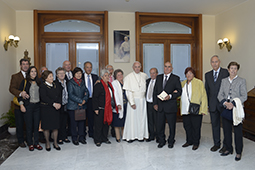
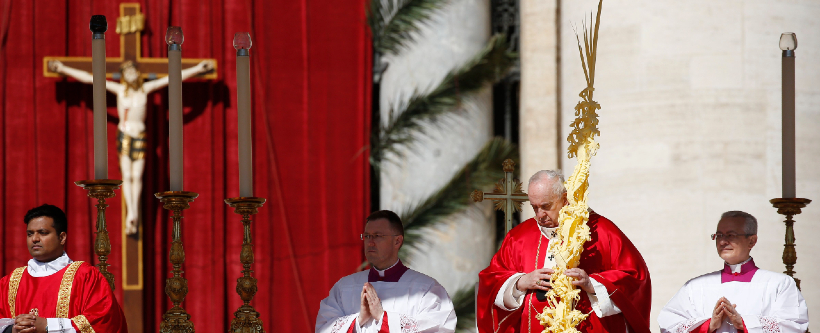
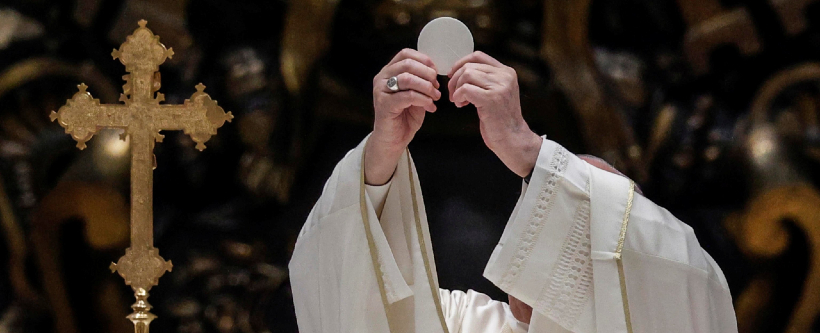
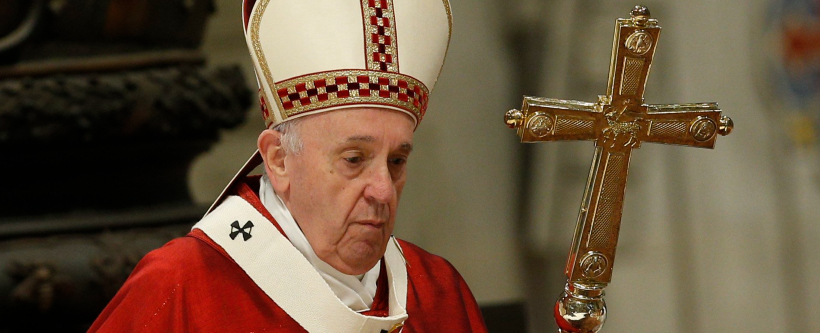
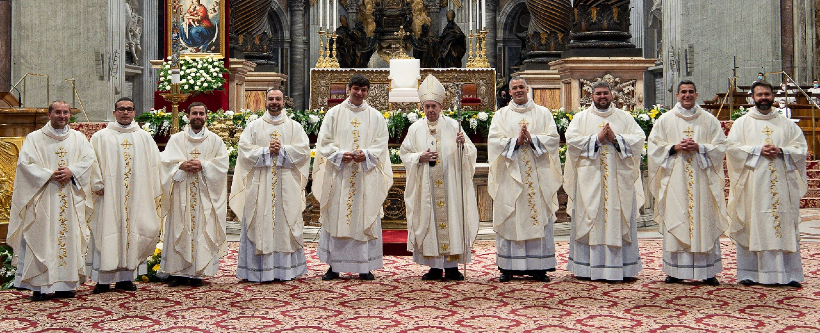
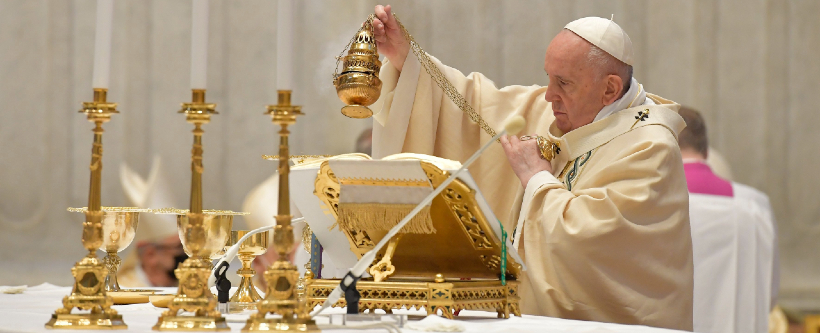
Facebook Comments